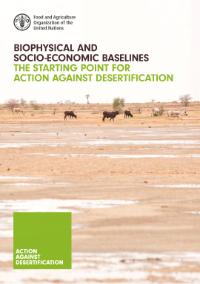Resource information
The Action Against Desertification (AAD) project supports eight ACP countries, Burkina Faso, Ethiopia, Gambia, Niger, Nigeria, Senegal, Fiji and Haiti in the sustainable management and restoration of degraded land. Baseline assessments have been carried out in each of these countries to establish a reference against which to monitor changes and project impacts, as well as to better target project activities and inform other stakeholders and restoration initiatives in these countries. Because the project aims to strengthen the link between the resilience of the natural resource base and livelihoods, two macro areas of indicators (biophysical and socio-economic) have been taken into account. The data from all the countries was analyzed, cleaned, validated and compiled in a harmonized database. This report is a summary presenting the key results of these assessments. It will allow all stakeholders involved in restoration initiatives to better know these areas and target their restoration interventions and monitor their impacts on people and the environment. The restoration needs and opportunities in Africa’s Great Green Wall, as well as Caribbean and Pacific countries, are huge. The report shows high levels of land degradation, and poverty, and the links between them. Urgent restoration is needed, such as carried out under FAO’s Against Desertification. However, a lot still needs to be done to support each country in restoring degraded land to combat the effects of climate change and desertification, and address food insecurity and poverty.


